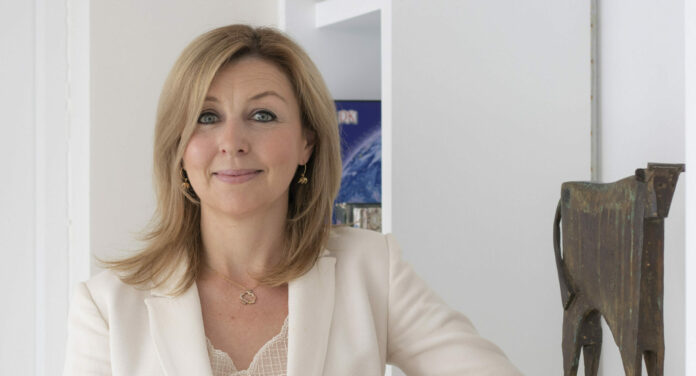BARRING further public health crises, the Ennis Book Club Festival will have in-person events on the first weekend in March.
One of these will be entitled Motherhood, Destiny and Choices: Irish and American debuts asking tough questions, to be held at St Columba’s Church on the afternoon of March 5.
Among the speakers will be Galway based Edel Coffey, whose first novel Breaking Point, has just come out.
It tells the story of Susannah, a working mother, pulled in different directions each day, working as a doctor, researcher and professor as well as being a wife and mother.
One frantic morning, with a disrupted routine and a work emergency, she leaves her young daughter in the car on a hot New York day. When she realises her mistake, it is already too late.
Another woman Adelaide is a reporter covering a subsequent negligence trial, and for her the story is a familiar one, stirring up ghosts from her own long-buried past.
A journalist herself, Edel has made her living through writing, but Breaking Point was her first foray into fiction and completing the novel came with a huge sense of achievement.
“I’d always wanted to write a novel, it was a long held goal and I was absolutely delighted with myself for having managed to do it!”
Edel had two children in two consecutive years, something that put the demands of motherhood to the front of her consciousness.
Also, while she had always wanted to write fiction, journalism had been taking up all her creative energies until the children arrived.
“I’m not saying I wasn’t busy, but I wasn’t working in the way that I had been working, the creative part of my brain wasn’t used up every day, in fact quite the opposite, I was kind of frustrated and I kind of started it at that time, when they were napping, eventually they were going to Montessori and I’d have a few minutes in the car.
“I discovered you can write in small, little intervals. I might do 20 minutes and if I could do that everyday I’d feel I was doing brilliantly. I found it incredible the amount you could do, I thought before you’d need three or four hours, work your way into it, light a candle, but there was none of that craic, it was like you’ve got ten minutes, go!”
The writing was a hugely welcome diversion, from the million daily tasks that go with raising small children.
“I loved it, because there was nothing else in my life at the time that was intellectually engaging. For me it was an escape. I know people might read the book and think what was she escaping from if this was the escape, but it really was a lovely sort of way to switch off, get out of my life into a completely different world, and I loved it.
“I think it was because I was missing that part of my life so much, that part of my life where I’d do some work and get some satisfaction, it was kind of replacing that. I think I was very annoying to be around because even when I wasn’t writing I was thinking about it all the time. My husband would be talking to me and I’d be like ‘yes, yes, yes’ and he’d say ‘I haven’t even asked you a question’. In my head the whole time I was thinking about the book!”
At the same time she was becoming acquainted with the very real difficulties that come with raising children and working.
While things might be hard enough for working mothers in Ireland, things are even harder in America with far fewer supports, and that’s why her novel is set in New York.
“I set it in New York for a really boring reason, there’s no maternity benefit in America. I really wanted to look at that conflict you feel as a mother, between really wanting to go back to work and really not wanting to leave your baby. In New York a lot of women go back to work after two weeks, they go back to work after a month, really tough kind of stuff. They’re trying to take their annual leave, trying to make it work so they can even get another week off.”
Writing the novel at the time she did gives it a certain rawness she feels, something that probably wouldn’t have been there at any other time in her life.
“I could very easily come up with a lot of examples of how difficult I thought it was at the time and what a struggle it was. The authenticity was there. Looking back now I think it was okay, but at the time it seemed awful!”
It’s just few years later, but the children don’t require as much attention as they once did, and Edel’s next novel will be on a totally different theme, as she has moved on.
“When you’re in that you think your life is never going to move on, you think that things are never going to change and you think that the baby is never going to sleep!
“But I look back now and those concerns are not my concerns anymore. It’s funny, you write a book and it’s always the product of a period in your life and how you feel about a certain thing. In a way maybe I wrote my way out of that part of my life, or maybe it’s just that live moves on, my youngest child is five years old now and we’re in a different phase again.”
Also at the same event will be American author Donna Freitas. Her debut novel The Nine Lives of Rose Napolitano is destined to drive women’s conversations as they debate the central character’s choices and options.
In the novel Rose Napolitano is fighting with her husband, Luke, about prenatal vitamins. She promised to take them but didn’t. He promised before they got married that he would never want children, but now has changed his mind.
Their marriage has come to rest on this one question: Can Rose find it in herself to become a mother? Nine lives are imagined, each with its own outcomes.
The event will be moderated by RTE journalist and researcher Paula Shields.
Owen Ryan has been a journalist with the Clare Champion since 2007, having previously worked with a number of other publications in Limerick, Cork and Galway. His first book will be published in December 2024.


